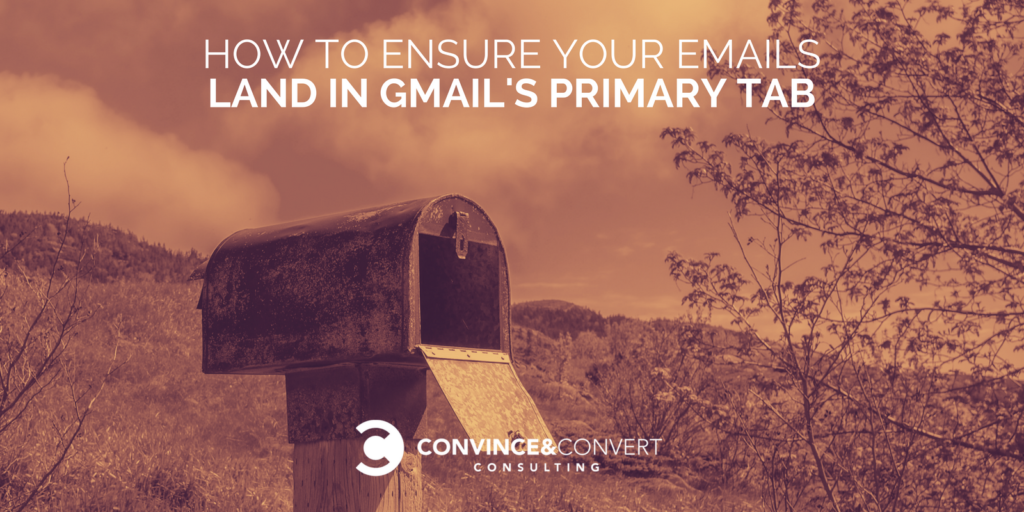
If recipients never see your marketing emails in their Gmail inboxes, the effort related to creating them is useless. Fortunately, you can decrease the likelihood that Gmail will think your messages are spam. Here are 8 ways to ensure your emails land in Gmail’s primary tab.
1. Review Gmail’s Bulk-Sending Guidelines
You might spend hours searching for generalized tips about keeping emails from getting caught by spam filters, but Gmail’s rules are the only ones that matter here, especially when sending out cold emails.
It’s a good idea to become familiar with the service’s current recommendations for bulk emails and revisit them often in case things change.
2. Encourage Subscribers to Make Simple Changes on Their End
Gmail’s guidelines indicate some things boost the chances of emails not landing in spam folders.
It’s a plus if your company’s email address is in a recipient’s contacts. Ask subscribers to open an email from you, then click the three-dots icon on the right. From there, they can add the address to their contacts.
It helps, too, if recipients immediately mark messages from you as important. They can do that by clicking the flag icon directly to the left of your email address or name in Gmail’s inbox list.
Alternatively, users can click on an email, then select the three-dots icon furthest to the right in the row of icons above the email’s subject line. From there, they should choose the “Mark As Important” option.
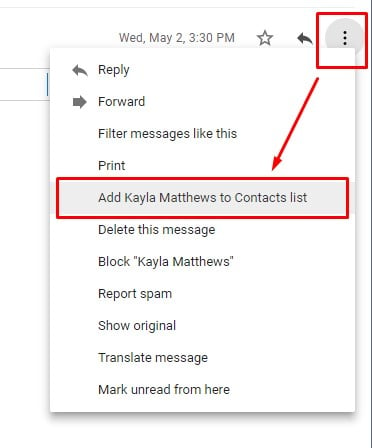
These methods teach Gmail that people value those emails and want to see them again.
3. Make the Emails Personal and Appealing When Possible
If you can include a recipient’s first name in emailed content and feature some message characteristics that aren’t purely promotional, analysts say those things increase the likelihood of content landing in the primary tab, too.
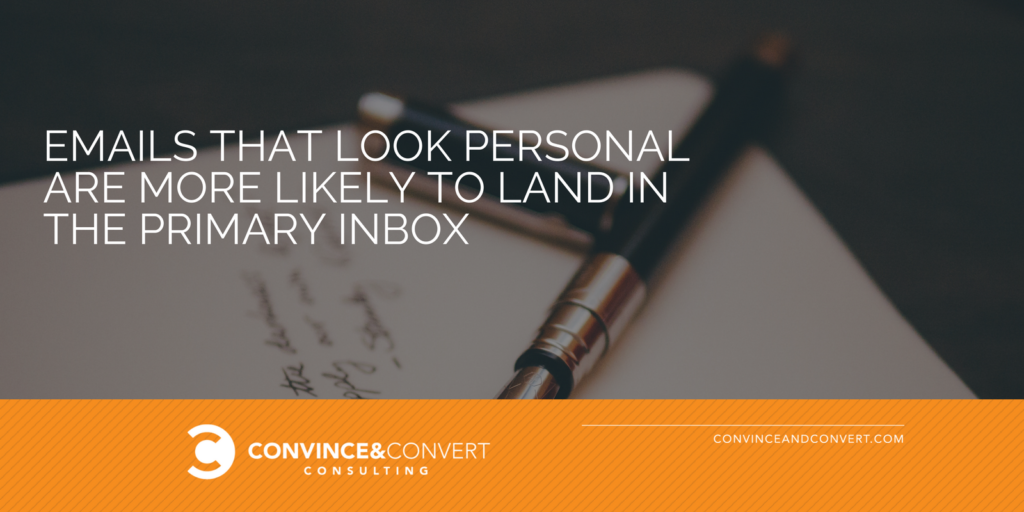
Keep the content short to increase engagement. Plus, be aware that too many links and images make emails seem not as uniquely targeted to the recipient.
Similarly, avoid some of the spamming red flags that often apply to stuff people consider junk mail. They include subject lines in all caps, misleading subject lines that contain “Re:” at the start even when you haven’t communicated with that person previously, and emails about topics recipients don’t deem relevant.
Emails that look personal and non-promotional are more likely to land in Gmail’s primary inbox. Click To Tweet
4. Send Your Emails Individually (Or in Very Small Batches)
You should also avoid distributing all your marketing messages at once. Even if you’re sending material that research indicates your target audience wants to read, massive sending sprees put email providers — including Gmail — on alert.
Limit a few cold-email mistakes by staggering the sending over several days by breaking your recipient list into sections.
5. Instruct Recipients to Drag Messages to the Primary Tab
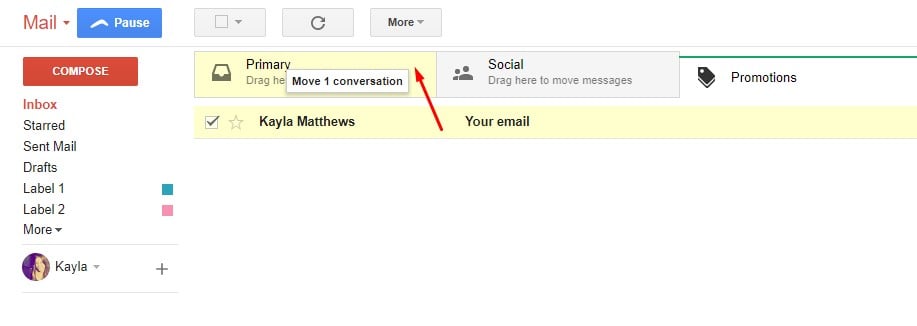
Despite your best efforts, there may be cases when your messages don’t initially land in the Primary inbox. That’s why it’s smart to include a short message in an email’s footer that says something like, “Didn’t get this email in your Primary inbox? Please click and drag our message to the Primary tab at the top of your Gmail interface to indicate it’s important.”
When users do so, they’ll get a message from Gmail asking if this is where they’d like your future emails to land. Encourage recipients to click “Yes” if they’d like to find your emails in the future easily.
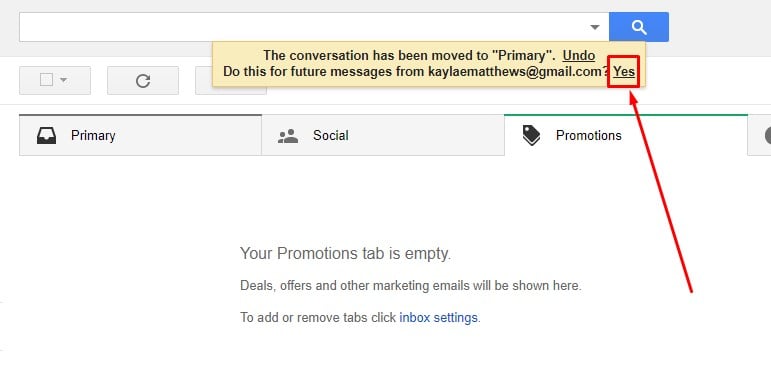
6. Advise People to Check Their Promotions Tab and Spam Folder
When sending messages to people who sign up for your email list, the page subscribers land on after submitting their details should alert them to be aware that the initial email they receive could land in Gmail’s Promotions tab or the Spam folder.
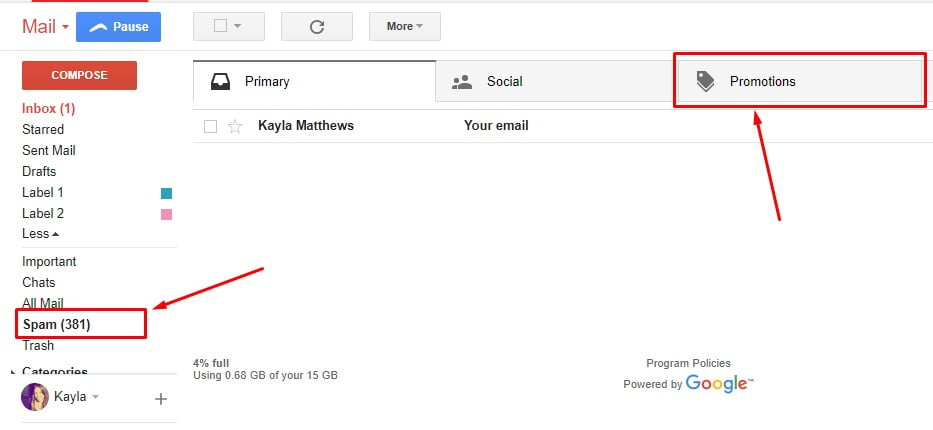
Recommend that they check those areas frequently. Ideally, let people know when they’ll get the first message from you. Something as straightforward as, “Thanks for signing up! We’ll be in touch within a week” sets expectations.
7. Be Aware of Gmail’s Newest Features
Thanks to a significant update, Gmail allows users to pick from five inboxes and switch between them at will. Hovering a cursor over the Inbox section on the left of the Gmail inbox makes a downward arrow appear. People can click it to change the inbox type.
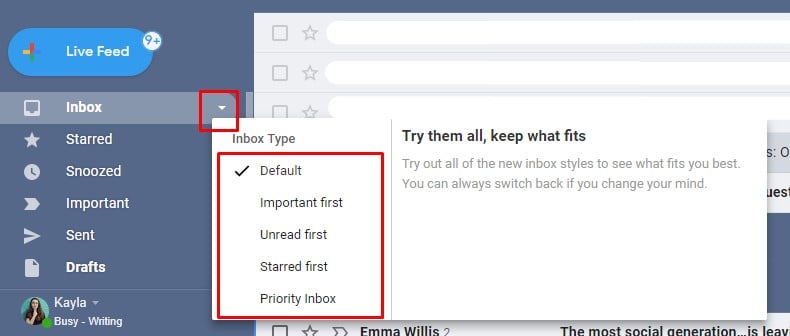
The inbox with tabs that you’re used to seeing is the Default inbox. But, users can try out a Priority inbox that combines Starred, Important and Unread emails, or choose the Unread First inbox, along with other options.
If customers reach out to you after receiving the Primary tab-based instructions outlined above and say they don’t see any tabs at the top of their inboxes, they may be using a type other than the Default option.
8. Use of AI
Another crucial thing to note about the Gmail update is it is heavily dependent on artificial intelligence (AI). Even if your recipients don’t apply the tips above for designating your emails as important, the Gmail app learns in the background and depends on collective information based on user habits.
One of those AI-driven components is a nudging feature. Google weighs several factors to judge whether emails deserve replies, including the frequency of previous interactions between a sender and recipient. When applicable, it reminds people they haven’t replied yet and prompts them to consider doing so.
After you move past the point of cold emails and start nurturing leads, writing emails that encourage recipients to write back to your correspondence could be useful.
Land in the Main Inbox
Whether you’re emailing someone for the first time or interacting with a long-time customer, it’s not always easy to make your emails sufficiently prominent in the main inbox. These tips should help.